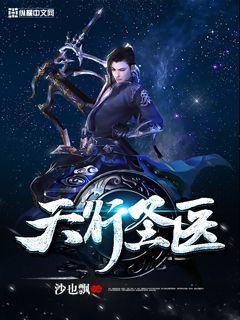
Certainly! Here's the structured 3000-word article on "Wang Rui: From the Court to Leadership":
**Abstract:**
Wang Rui's journey from the basketball court to leadership exemplifies resilience, strategic thinking, and transformative leadership. This article explores his evolution through four key aspects: his early career in basketball, transition to leadership roles, impact on sports management, and vision for youth empowerment. Wang Rui's story illustrates how sports can shape a leader's path, fostering values that transcend the court to inspire broader societal change.
**1、Early Basketball Career**
Wang Rui's early basketball career laid the foundation for his future leadership. Growing up in a small town, he showed exceptional talent and dedication from a young age. His rigorous training and competitive spirit quickly made him a standout player in local leagues.
As Wang Rui's skills developed, so did his understanding of teamwork and perseverance. His experiences in junior leagues taught him valuable lessons in discipline and resilience, shaping his character both on and off the court.
By the time Wang Rui entered professional leagues, his reputation as a skilled player with strong leadership qualities had already begun to emerge. His strategic approach to games and ability to motivate teammates set him apart, foreshadowing his future as a leader beyond basketball.
**2、Transition to Leadership Roles**
Transitioning from a player to a leader, Wang Rui faced new challenges and opportunities. Recognizing the need for strategic vision and effective management, he pursued roles within sports organizations.
Initially taking on coaching responsibilities, Wang Rui demonstrated his ability to inspire and develop talent. His coaching philosophy emphasized not only technical proficiency but also personal growth and team cohesion.
Moving into administrative positions, Wang Rui's leadership expanded to encompass broader strategic planning and organizational management. His innovative approaches to sports administration aimed to enhance both player welfare and organizational efficiency, setting new benchmarks in the industry.
Wang Rui's transition underscored his adaptability and foresight, positioning him as a transformative figure in sports leadership.
**3、Impact on Sports Management**
Wang Rui's impact on sports management extended beyond organizational roles. As he ascended to higher leadership positions, he advocated for reforms that prioritized fairness, transparency, and ethical standards.
Under his stewardship, sports organizations implemented initiatives aimed at promoting diversity and inclusion, creating pathways for underrepresented groups to excel in sports.
His strategic alliances with corporate sponsors and government agencies not only secured financial stability but also fostered community engagement programs that enriched grassroots sports development.
Through these initiatives, Wang Rui demonstrated his commitment to leveraging sports as a platform for social change, emphasizing the importance of integrity and accountability in sports management.
**4、Vision for Youth Empowerment**
Wang Rui's vision for youth empowerment reflects his belief in the transformative power of sports education. Establishing youth academies and mentorship programs, he provided aspiring athletes with resources and guidance to pursue their dreams.
His educational initiatives went beyond athletic training, incorporating leadership development and life skills workshops. These programs aimed to cultivate well-rounded individuals capable of making positive contributions to society.
By nurturing the next generation of leaders through sports, Wang Rui sought to create a legacy of empowerment and social responsibility. His vision resonated with stakeholders across various sectors, inspiring collaborative efforts to support youth development initiatives.
**Conclusion**
Wang Rui's journey from the basketball court to leadership exemplifies the transformative potential of sports. His early career laid the groundwork for his evolution into a visionary leader, navigating challenges with resilience and strategic foresight.
Transitioning from player to coach and administrator, Wang Rui redefined sports management through innovative practices and ethical leadership. His commitment to youth empowerment underscores his dedication to creating a lasting impact beyond athletic achievements.
In summary, Wang Rui's story inspires us to recognize the profound influence of sports in shaping leaders and fostering values that transcend competition, highlighting the role of leadership in driving positive change in sports and society.
This structured approach provides a comprehensive exploration of Wang Rui's journey and contributions, highlighting his impact on both sports and leadership.
文章摘要
这篇文章将深入探讨韩国足球丑闻:腐败与道德挑战。首先,我们将从腐败问题入手,分析其对韩国足球界的影响和根源。其次,我们将探讨道德挑战对韩国足球文化的冲击,以及如何重建道德体系。接着,我们将讨论腐败与道德之间的关系,以及如何找到平衡点。最后,我们将总结这些讨论,呼吁韩国足球界共同努力解决腐败与道德挑战,建立更加健康、透明的体制。
1、腐败问题分析
韩国足球界腐败问题的起因是什么?历史上出现过哪些案例?这些腐败行为对韩国足球的发展产生了怎样的影响?
在解决腐败问题方面,韩国足球界目前采取了哪些措施?这些措施是否有效?还需要进一步改进什么?
腐败问题的根源究竟在哪里?韩国足球界应该如何打破这一恶性循环?
2、道德挑战冲击
道德挑战在韩国足球界中具体表现为哪些方面?这些挑战对球员、教练和俱乐部产生了怎样的负面影响?
道德观念的淡化是导致道德挑战的主要原因吗?韩国社会价值观的变化是否是导致这一现象的根源?
如何重建韩国足球文化中的道德体系?韩国足球界需要采取哪些具体举措来应对道德挑战?
3、腐败与道德的关系
腐败行为与道德问题之间是否存在内在联系?腐败行为会导致道德观念的混乱吗?
在处理腐败问题的同时,如何确保韩国足球界的道德观念得到有效加强?腐败治理和道德建设应该如何相互配合?
如何在腐败治理和道德建设之间找到平衡点?韩国足球界应该制定怎样的长期发展规划来保持腐败与道德的平衡?
4、总结
韩国足球丑闻揭示了腐败和道德挑战对体育界的严重影响,促使我们反思与担忧。唯有对腐败与道德挑战采取切实有效的措施,才能让韩国足球立于不败之地。
韩国足球界必须树���起健全的道德体系,铲除腐败现象,重塑公正透明的赛场环境,推动足球运动的可持续发展,为社会树立正面典范。
文章摘要:本文探讨了杜佳在其职业生涯中所经历的突破与挑战。通过分析其从业初期的探索与成长,专业技能的提升与市场竞争的应对,领导能力的培养与团队协作的挑战,以及个人发展中的转折与挑战,展现了他在不同阶段如何应对各种挑战并取得突破,最终成就其职业生涯的成功。
1、从业初期的探索与成长
杜佳在职业生涯初期面临了诸多探索与成长的机会与挑战。刚进入行业时,他面对着新技能的学习和实践,需要快速适应工作节奏与专业要求。最初的几年是他积累经验、建立人脉和塑造个人品牌的重要阶段。
随着时间的推移,他如何在初期的项目中不断提升自己的能力,通过实际操作不断突破自我,逐步在行业中站稳脚跟?这些经历如何影响了他职业生涯中后续的发展方向与决策?
在这一阶段,他是如何处理职业生涯中的起步阶段的挑战,为未来的成就奠定了坚实的基础?
2、专业技能的提升与市场竞争的应对
随着职业生涯的发展,杜佳需要不断提升自己的专业技能以应对日益激烈的市场竞争。他在职业生涯中是如何持续学习和成长的?他如何选择适合自己发展的技能和领域,并在其中取得突破性的进展?
面对市场上的新兴趋势和技术变革,他是如何调整自己的职业发展策略和学习路径?在这个过程中,他又遇到了哪些技术或行业转型带来的挑战?
通过努力学习与实践,他是如何在技术变革和市场竞争中保持竞争优势?
3、领导能力的培养与团队协作的挑战
随着在职业生涯中的逐步晋升,杜佳需要培养领导能力并处理团队协作中的挑战。他是如何从一个执行者发展为领导者?他在领导团队时遇到了哪些挑战,又是如何克服这些挑战的?
在团队协作中,他是如何平衡个人的创新与团队的整体目标?他是如何建立和维护高效的工作团队?这些经历如何塑造了他作为领导者的风格和方法论?
他在领导岗位上的成就和挑战如何影响了他职业生涯中后续的发展路径?
4、个人发展中的转折与挑战
在职业生涯的某些阶段,杜佳可能会面临个人发展中的转折与挑战。这些转折可能来自于外部环境的变化或内在发展的需求。他是如何应对这些转折和挑战的?
个人发展中的转折如何影响了他的职业轨迹和目标?他是如何重新调整自己的职业规划以应对新的挑战和机遇?
通过这些个人发展中的转折,他又是如何找到新的成长点,并继续前行?这些经历如何让他更加坚定和成熟?
总结:
杜佳在其职业生涯中经历了各种挑战和转折,但通过不断学习与适应,他成功地突破了种种难关,取得了显著的成就。他的经历不仅展示了个人成长的过程,也为他未来的职业发展奠定了坚实的基础。在竞争激烈的职场中,杜佳的故事激励着更多人追求卓越和成功。
无论面对何种挑战,他始终以积极的态度和坚定的信念前行,这使他不断超越自我,成为行业内的佼佼者。